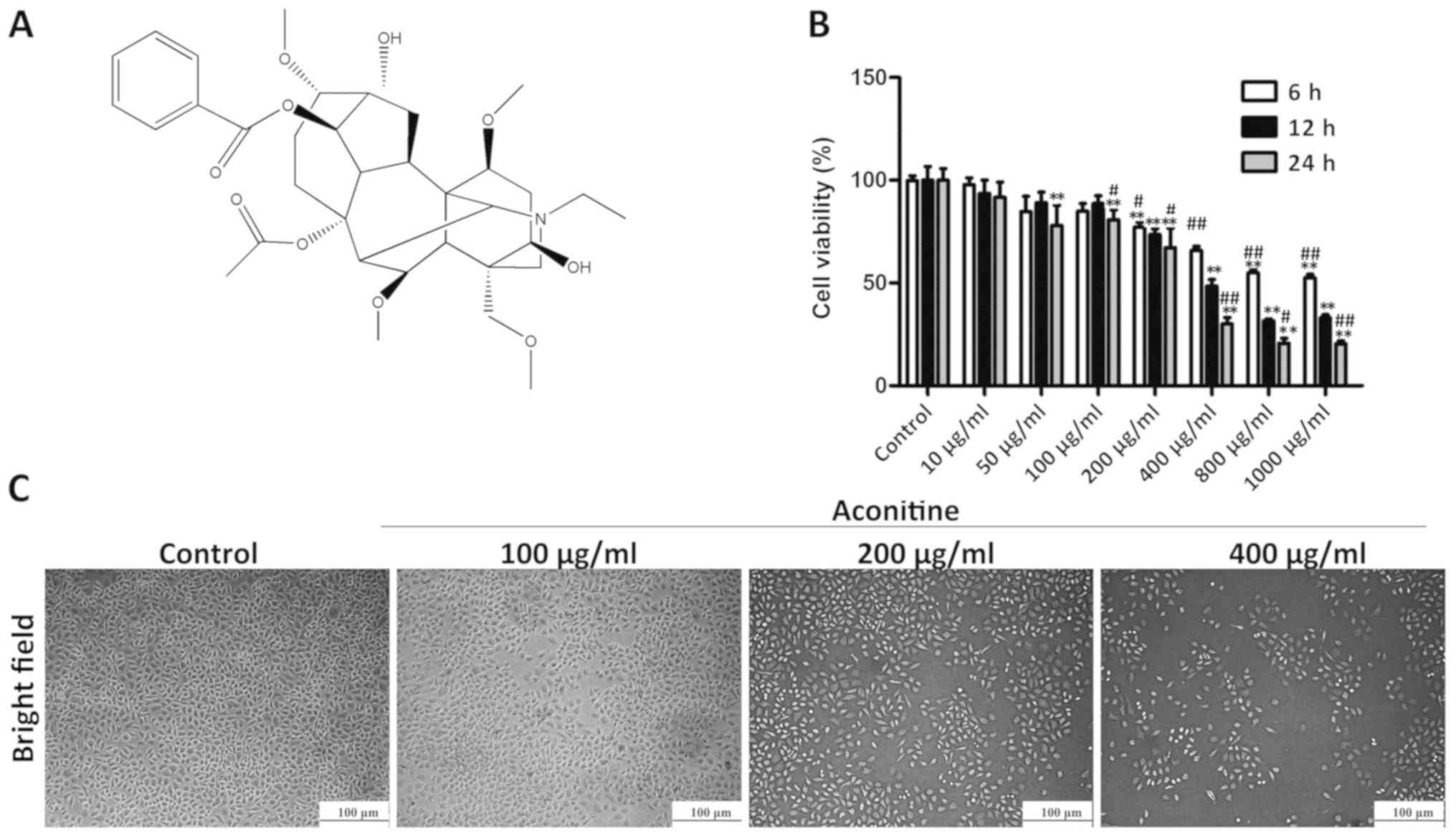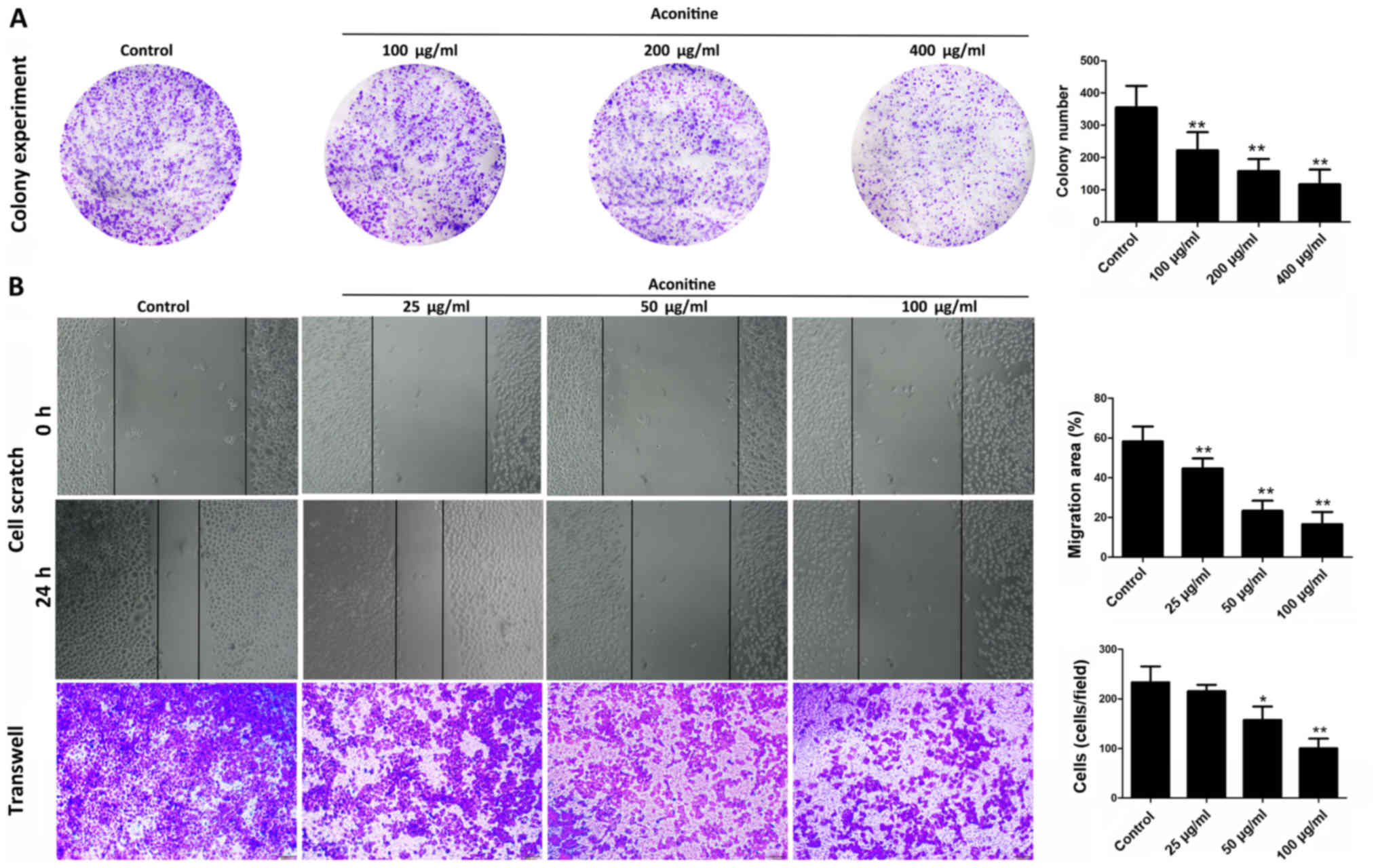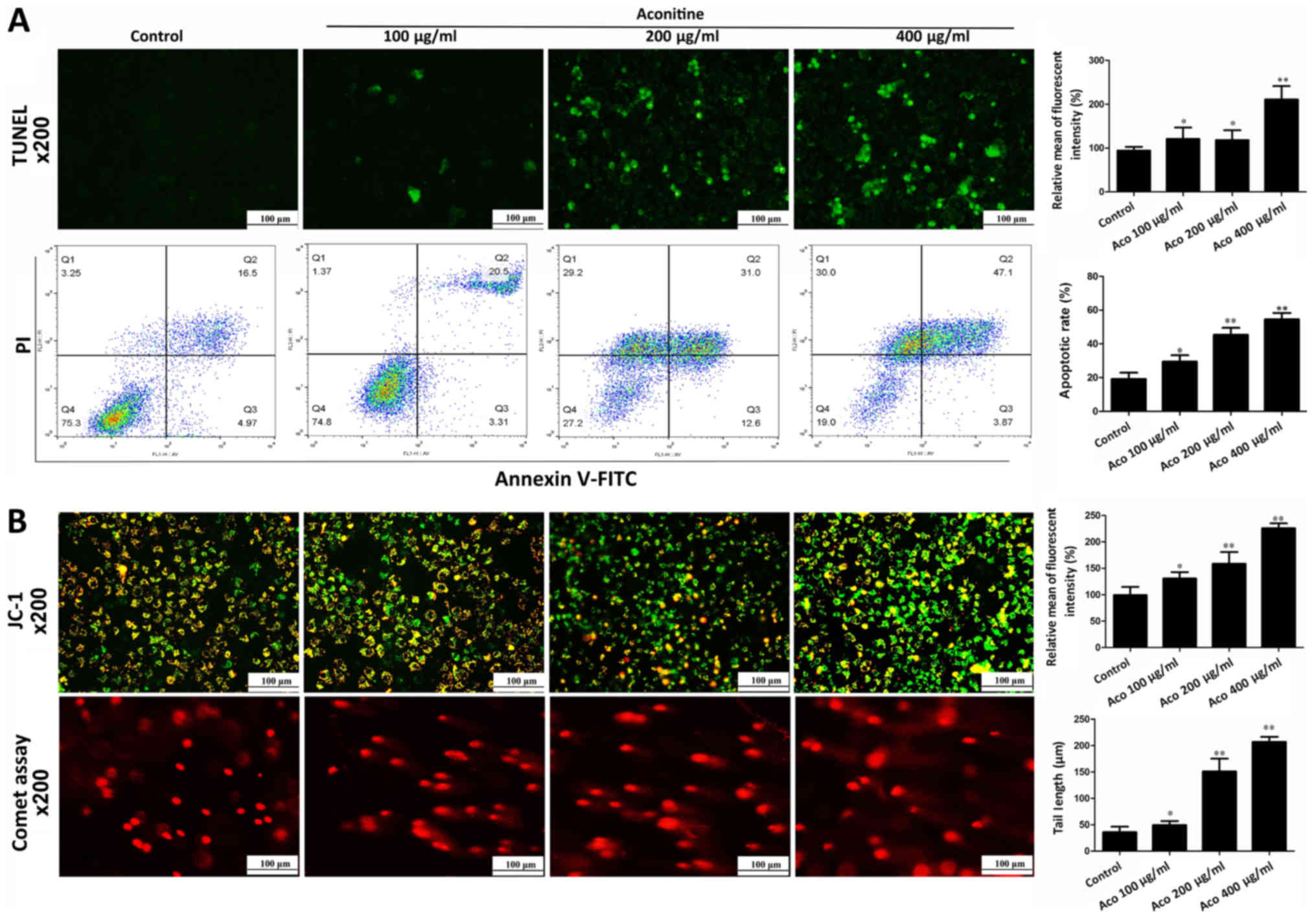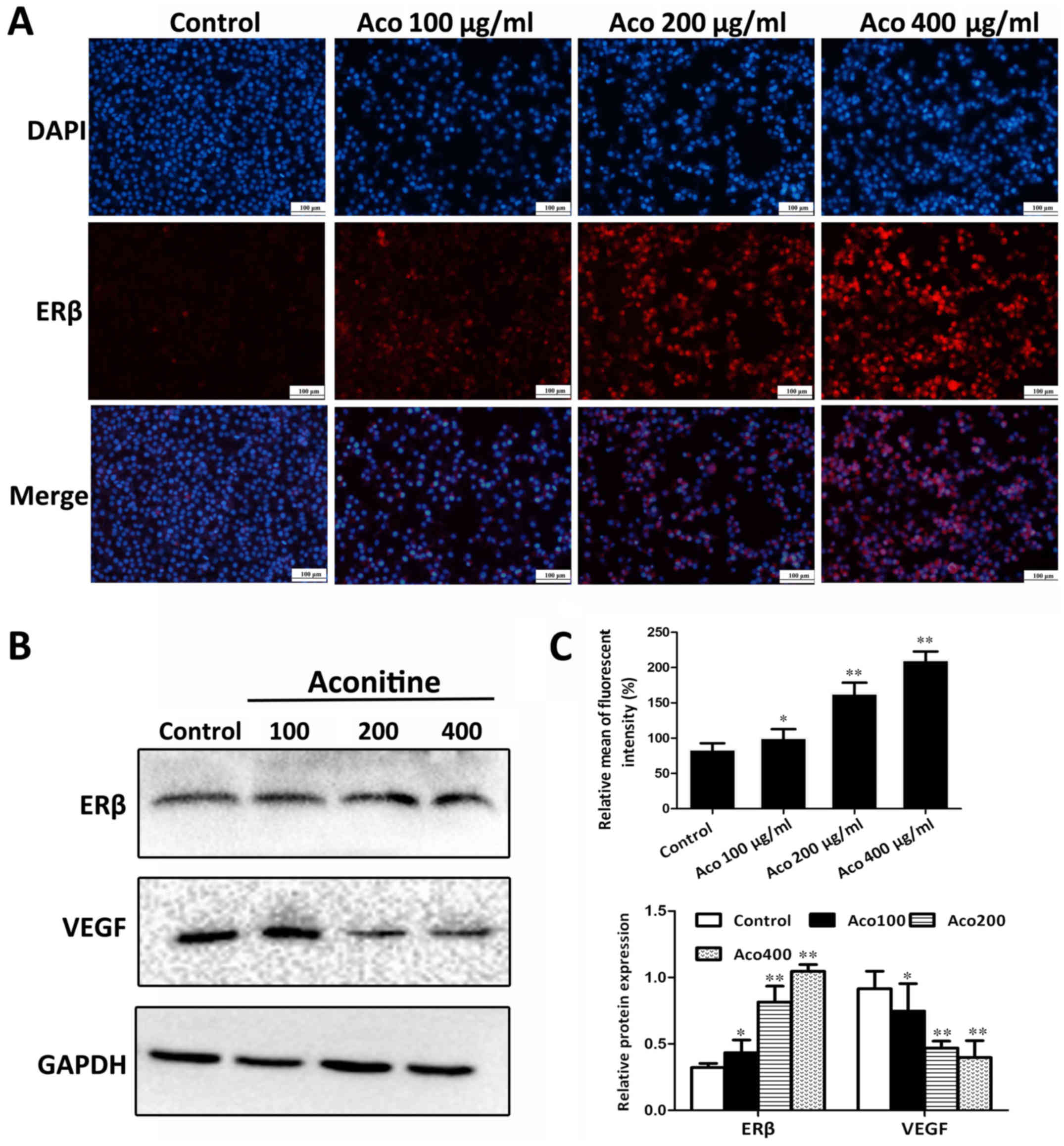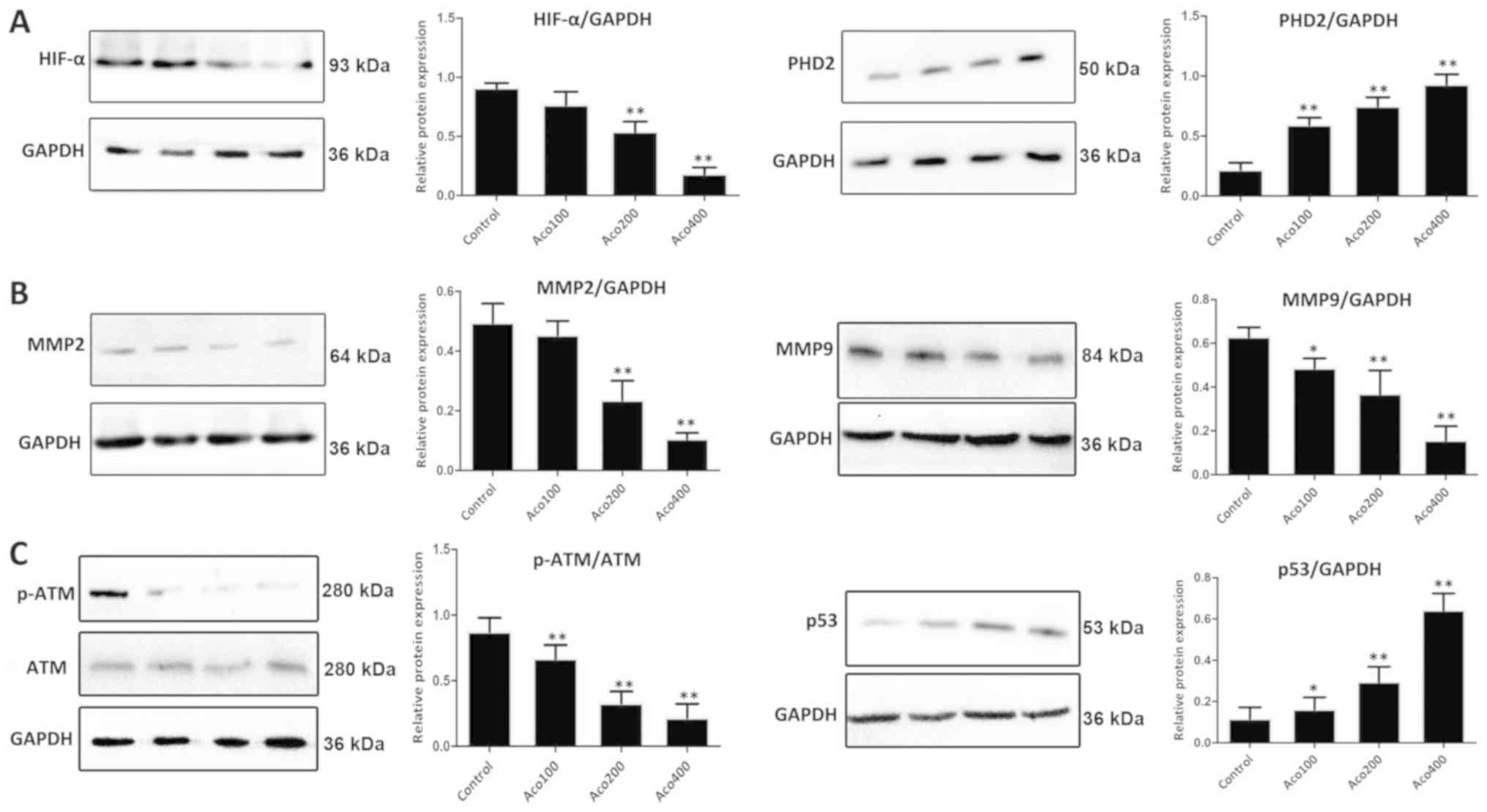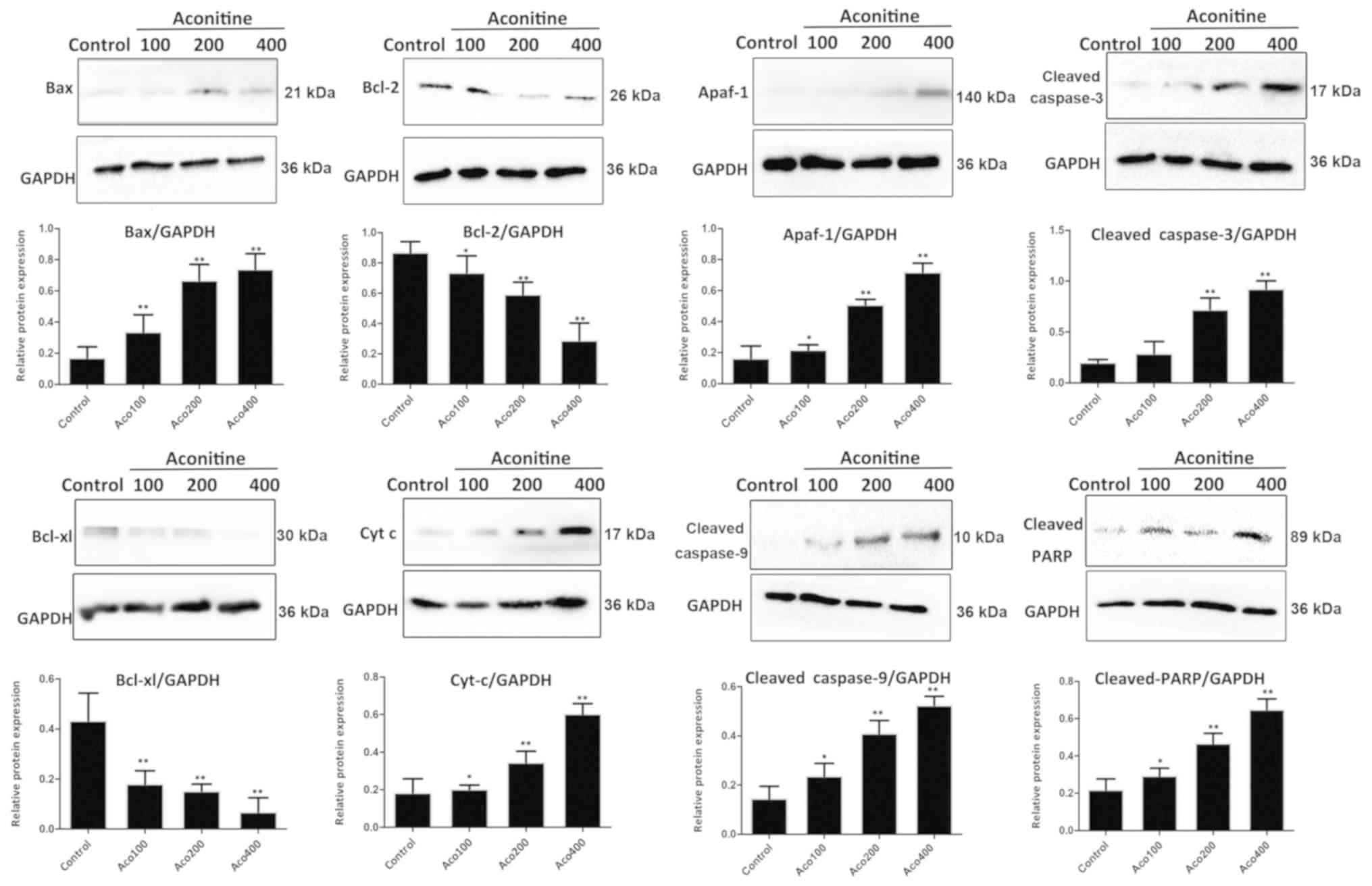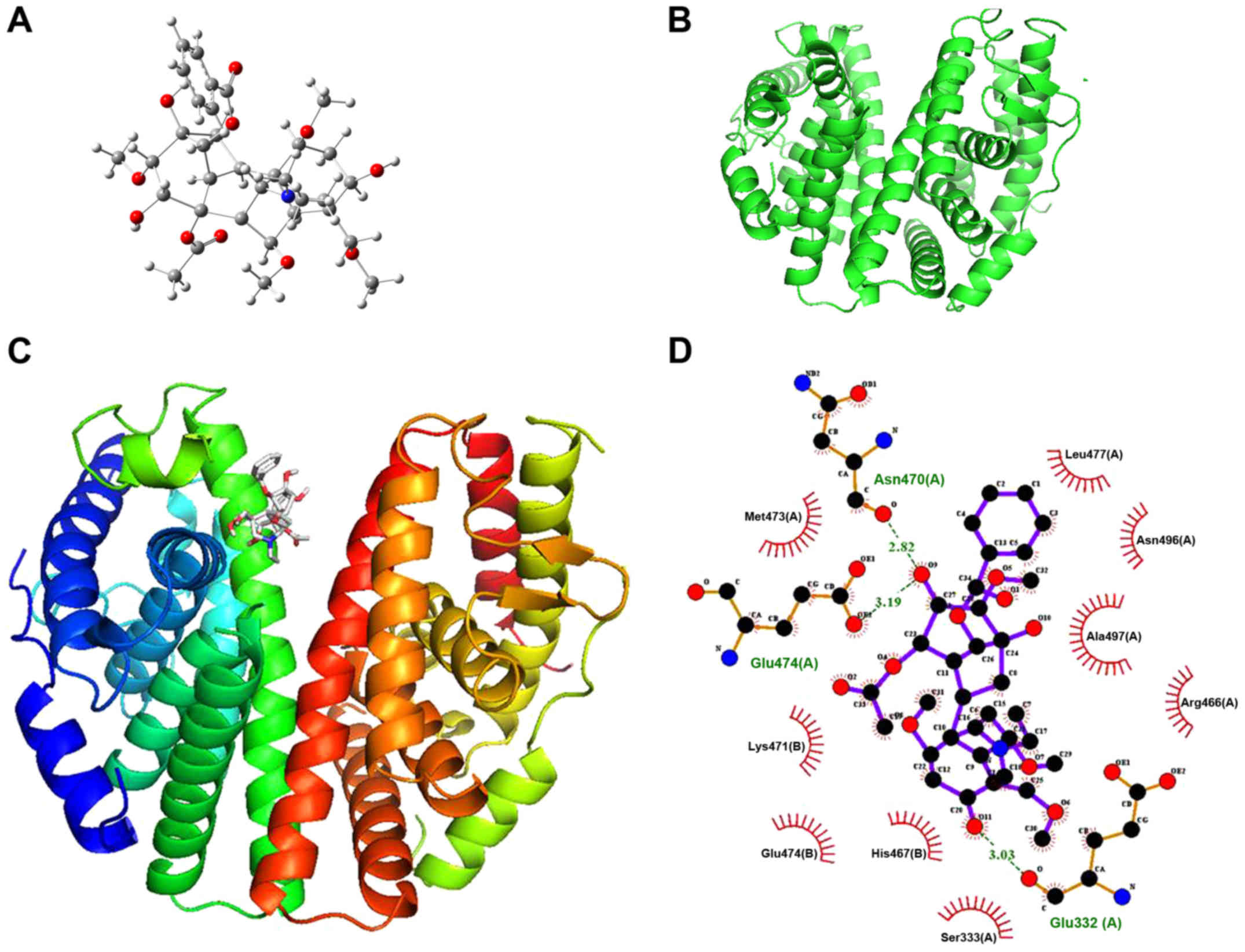|
1
|
Vang R, Shih IM and Kurman RJ: Ovarian
Low-grade and High-grade Serous Carcinoma. Pathogenesis
clinicopathologic and molecular biologic features and diagnostic
problems. Adv Anatomic Pathol. 16:267–282. 2009. View Article : Google Scholar
|
|
2
|
Liu J, Zhang Z, Guo Q, Dong Y, Zhao Q and
Ma X: Syringin prevents bone loss in ovariectomized mice via TRAF6
mediated inhibition of NF-κB and stimulation of PI3K/AKT.
Phytomedicine. 42:43–50. 2018. View Article : Google Scholar : PubMed/NCBI
|
|
3
|
Han CY, Patten DA, Richardson RB, Harper
ME and Tsang BK: Tumor metabolism regulating chemosensitivity in
ovarian cancer. Genes Cancer. 9:155–175. 2018.PubMed/NCBI
|
|
4
|
Hainsworth JD, Thompson DS, Bismayer JA,
Gian VG, Merritt WM, Whorf RC Finney LH and Dudley BS:
Paclitaxel/carboplatin with or without sorafenib in the first-line
treatment of patients with stage III/IV epithelial ovarian cancer:
A randomized phase II study of the Sarah Cannon Research Institute.
Cancer Med. 4:673–681. 2015. View
Article : Google Scholar : PubMed/NCBI
|
|
5
|
Wilhelm SM, Carter C, Tang L, Wilkie D,
McNabola A, Rong H, Chen C, Zhang X, Vincent P, McHugh M, et al:
BAY 43-9006 exhibits broad spectrum oral antitumor activity and
targets the RAF/MEK/ERK pathway and receptor tyrosine kinases
involved in tumor progression and angiogenesis. Cancer Res.
64:7099–7109. 2004. View Article : Google Scholar : PubMed/NCBI
|
|
6
|
Treeck O, Lattrich C, Springwald A and
Ortmann O: Estrogen receptor beta exerts growth-inhibitory effects
on human mammary epithelial cells. Breast Cancer Res Treat.
120:557–565. 2010. View Article : Google Scholar : PubMed/NCBI
|
|
7
|
Treeck O, Juhasz-Boess I, Lattrich C, Horn
F, Goerse R and Ortmann O: Effects of exon-deleted estrogen
receptor beta transcript variants on growth, apoptosis and gene
expression of human breast cancer cell lines. Breast Cancer Res
Treat. 110:507–520. 2008. View Article : Google Scholar : PubMed/NCBI
|
|
8
|
Chan KKL, Siu MKY, Jiang YX, Wang JJ,
Leung THY and Ngan HYS: Estrogen receptor modulators genistein,
daidzein and ERB-041 inhibit cell migration, invasion,
proliferation and sphere formation via modulation of FAK and
PI3K/AKT signaling in ovarian cancer. Cancer Cell Int. 18:652018.
View Article : Google Scholar : PubMed/NCBI
|
|
9
|
Leung YK, Mak P, Hassan S and Ho SM:
Estrogen receptor (ER)-beta isoforms: A key to understanding
ER-beta signaling. Proc Natl Acad Sci USA. 103:13162–13167. 2006.
View Article : Google Scholar : PubMed/NCBI
|
|
10
|
Schuler-Toprak S, Weber F, Skrzypczak M,
Ortmann O and Treeck O: Estrogen receptor beta is associated with
expression of cancer associated genes and survival in ovarian
cancer. BMC Cancer. 18:9812018. View Article : Google Scholar : PubMed/NCBI
|
|
11
|
Mak P, Leav I, Pursell B, Bae D, Yang X,
Taglienti CA, Gouvin LM, Sharma VM and Mercurio AM: ERbeta impedes
prostate cancer EMT by destabilizing HIF-1alpha and inhibiting
VEGF-mediated snail nuclear localization: Implications for Gleason
grading. Cancer Cell. 17:319–332. 2010. View Article : Google Scholar : PubMed/NCBI
|
|
12
|
Wang Y, Niu XL, Guo XQ, Yang J, Li L, Qu
Y, Xiu Hu C, Mao LQ and Wang D: IL6 induces TAM resistance via
kinase-specific phosphorylation of ERα in OVCA cells. J Mol
Endocrinol. 54:351–361. 2015. View Article : Google Scholar : PubMed/NCBI
|
|
13
|
Halon A, Nowak-Markwitz E, Maciejczyk A,
Pudelko M, Gansukh T, Györffy B, Donizy P, Murawa D, Matkowski R,
Spaczynski M, et al: Loss of estrogen receptor beta expression
correlates with shorter overall survival and lack of clinical
response to chemotherapy in ovarian cancer patients. Anticancer
Res. 31:711–718. 2011.PubMed/NCBI
|
|
14
|
Fixemer T, Remberger K and Bonkhoff H:
Differential expression of the estrogen receptor beta (ER beta) in
human prostate tissue, premalignant changes, and in primary,
metastatic, and recurrent prostatic adenocarcinoma. Prostate.
54:79–87. 2003. View Article : Google Scholar : PubMed/NCBI
|
|
15
|
Mak P, Chang C, Pursell B and Mercurio AM:
Estrogen receptor βsustains epithelial differentiation by
regulating prolyl hydroxylase 2 transcription. Proc Natl Acad Sci
USA. 110:4708–4713. 2013. View Article : Google Scholar : PubMed/NCBI
|
|
16
|
Goel HL and Mercurio AM: VEGF targets the
tumour cell. Nat Rev Cancer. 13:871–882. 2013. View Article : Google Scholar : PubMed/NCBI
|
|
17
|
Bhattacharya R, Ye XC, Wang R, Ling X,
McManus M, Fan F, Boulbes D and Ellis LM: Intracrine VEGF signaling
mediates the activity of prosurvival pathways in human colorectal
cancer cells. Cancer Res. 76:3014–3024. 2016. View Article : Google Scholar : PubMed/NCBI
|
|
18
|
Wang ZY, Zarlenga D, Martin J, Abubucker S
and Mitreva M: Exploring metazoan evolution through dynamic and
holistic changes in protein families and domains. BMC Evolut Biol.
12:1382012. View Article : Google Scholar
|
|
19
|
Xu GL, Xie M, Yang XY, Song Y, Yan C, Yang
Y, Zhang X, Liu ZZ, Tian YX, Wang Y, et al: Spectrum-effect
relationships as a systematic approach to traditional chinese
medicine research: Current status and future perspectives.
Molecules. 19:17897–17925. 2014. View Article : Google Scholar : PubMed/NCBI
|
|
20
|
Xu J and Yang Y: Traditional Chinese
medicine in the Chinese health care system. Health Policy.
90:133–139. 2009. View Article : Google Scholar : PubMed/NCBI
|
|
21
|
Wang S, Wu X, Tan M, Gong J, Tan W, Bian
B, Chen M and Wang Y: Fighting fire with fire: Poisonous Chinese
herbal medicine for cancer therapy. J Ethnopharmacol. 140:33–45.
2012. View Article : Google Scholar : PubMed/NCBI
|
|
22
|
Lv L, Zheng L, Dong D, Xu L, Yin L, Xu Y,
Qi Y, Han X and Peng J: Dioscin, a natural steroid saponin, induces
apoptosis and DNA damage through reactive oxygen species: A
potential new drug for treatment of glioblastoma multiforme. Food
Chem Toxicol. 59:657–669. 2013. View Article : Google Scholar : PubMed/NCBI
|
|
23
|
Zhao X, Xu L, Zheng L, Yin L, Qi Y, Han X,
Xu Y and Peng J: Potent effects of dioscin against gastric cancer
in vitro and in vivo. Phytomedicine. 23:274–282. 2016. View Article : Google Scholar : PubMed/NCBI
|
|
24
|
Si L, Zheng L, Xu L, Yin L Han X, Qi Y, Xu
Y, Wang C and Peng J: Dioscin suppresses human laryngeal cancer
cells growth via induction of cell-cycle arrest and MAPK-mediated
mitochondrial derived apoptosis and inhibition of tumor invasion.
Eur J Pharmacol. 774:105–117. 2016. View Article : Google Scholar : PubMed/NCBI
|
|
25
|
Si L, Xu L, Yin L, Qi Y, Han X, Xu Y, Zhao
Y, Liu K and Peng J: Potent effects of dioscin against pancreatic
cancer via miR-149-3P-mediated inhibition of the AKT1 signaling
pathway. Br J Pharmacol. 174:553–568. 2017. View Article : Google Scholar : PubMed/NCBI
|
|
26
|
Mao Z, Han X, Chen D, Xu Y, Xu L, Yin L,
Sun H, Qi Y, Fang L, Liu K and Peng J: Potent effects of dioscin
against hepatocellular carcinoma through regulating TIGAR-mediated
apoptosis, autophagy and DNA damage. Br J Pharmacol. 176:919–937.
2019. View Article : Google Scholar : PubMed/NCBI
|
|
27
|
Tao X, Xu L, Yin L, Han X, Qi Y, Xu Y,
Song S, Zhao Y and Peng J: Dioscin induces prostate cancer cell
apoptosis through activation of Estrogen Receptor-β. Cell Death
Dis. 8:e29892017. View Article : Google Scholar : PubMed/NCBI
|
|
28
|
Chen H, Xu L, Yin L, Xu Y, Han X, Qi Y and
Peng J: iTRAQ-based proteomic analysis of dioscin on human HCT-116
colon cancer cells. Proteomics. 14:51–73. 2014. View Article : Google Scholar : PubMed/NCBI
|
|
29
|
Lu B, Hu M, Liu K and Peng J: Cytotoxicity
of berberine on human cervical carcinoma HeLa cells through
mitochondria, death receptor and MAPK pathways, and in-silico
drug-target prediction. Toxicol in Vitro. 24:1482–1490. 2010.
View Article : Google Scholar : PubMed/NCBI
|
|
30
|
Wei Y, Xu YS, Han X, Qi Y, Xu L, Xu Y, Yin
L, Sun H, Liu K and Peng J: Anti-cancer effects of dioscin on three
kinds of human lung cancer cell lines through inducing DNA damage
and activating mitochondrial signal pathway. Food Chem Toxicol.
59:118–128. 2013. View Article : Google Scholar : PubMed/NCBI
|
|
31
|
Ning Y, Feng W, Cao X, Ren K, Quan M, Chen
A, Xu C, Qiu Y, Cao J, Li X and Luo X: Genistein inhibits stemness
of SKOV3 cells induced by macrophages co-cultured with ovarian
cancer stem-like cells through IL-8/STAT3 axis. J Exp Clin Cancer
Res. 38:192019. View Article : Google Scholar : PubMed/NCBI
|
|
32
|
Wang MY, Liang JW, Olounfeh KM, Sun Q,
Zhao N and Meng FH: A comprehensive in silico method to study the
QSTR of the aconitine alkaloids for designing novel drugs.
Molecules. 23(pii): E23852018. View Article : Google Scholar : PubMed/NCBI
|
|
33
|
Ji BL, Xia LP, Zhou FX, Mao GZ and Xu LX:
Aconitine induces cell apoptosis in human pancreatic cancer via
NF-κB signaling pathway. Eur Rev Med Pharmacol Sci. 20:4955–4964.
2016.PubMed/NCBI
|
|
34
|
Li XM, Liu J, Pan FF, Shi DD, Wen ZG and
Yang PL: Quercetin and aconitine synergistically induces the human
cervical carcinoma HeLa cell apoptosis via endoplasmic reticulum
(ER) stress pathway. PLoS One. 13:e01910622018. View Article : Google Scholar : PubMed/NCBI
|
|
35
|
Frisch M, Trucks G, Schlegel H, Scuseria
G, Robb M, Heeseman J, Scalmani G, Barone V, Petersson GA,
Nakatsuji H, et al: Gaussian 09, Revision A.02. Gaussian, Inc.
(Wallingford CT). 2009.
|
|
36
|
Becke A: Density-functional
thermochemistry. III. The role of exact exchange. J Chem Phys.
98:5648–5653. 1993. View Article : Google Scholar
|
|
37
|
Lee C, Yang W and Parr R: Development of
the colic-salvetti correlation-energy formula into a functional of
the electron density. Phys Rev B Condens Matter. 37:785–789. 1988.
View Article : Google Scholar : PubMed/NCBI
|
|
38
|
Schüttelkopf AW and Van Aalten DM: PRODRG:
A tool for high-throughput crystallography of protein-ligand
complexes. Acta Crystallogr D Biol Crystallogr. 60:1355–1363. 2004.
View Article : Google Scholar : PubMed/NCBI
|
|
39
|
Zhang S, Leng T, Zhang Q, Zhao Q, Nie X
and Yang L: Sanguinarine inhibits epithelial ovarian cancer
development via regulating long non-coding RNA CASC2- EIF4A3 axis
and/or inhibiting NF-κB signaling or PI3K/AKT/mTOR pathway. Biomed
Pharmacother. 102:302–308. 2018. View Article : Google Scholar : PubMed/NCBI
|
|
40
|
Zhu L, Liu X, Li D, Sun S, Wang Y and Sun
X: Autophagy is a pro-survival mechanism in ovarian cancer against
the apoptotic effects of euxanthone. Biomed Pharmacother.
103:708–718. 2018. View Article : Google Scholar : PubMed/NCBI
|
|
41
|
Xia Z, Lundgren B, Bergstrand A, DePierre
JW and Nässberger L: Changes in the generation of reactive oxygen
species and in mitochon- drial membrane potential during apoptosis
induced by the antidepressant imipramine, clomipramine, and
citalopram and the effects on these changes by Bcl-2 and Bcl-X(L).
Biochem Pharmacol. 57:1199–1208. 1999. View Article : Google Scholar : PubMed/NCBI
|
|
42
|
Wang X: The expanding role of mitochondria
in apoptosis. Genes Dev. 15:2922–2933. 2001.PubMed/NCBI
|
|
43
|
Li Z, Fan EK, Liu J, Scott MJ, Li Y, Li S,
Xie W, Billiar TR, Wilson MA, Jiang Y, et al: Cold-inducible
RNA-binding protein through TLR4 signaling induces mitochondrial
DNA fragmentation and regulates macrophage cell death after trauma.
Cell Death Dis. 8:e27752017. View Article : Google Scholar : PubMed/NCBI
|
|
44
|
Anestis A, Sarantis P, Theocharis S, Zoi
I, Tryfonopoulos D, Korogiannos A, Koumarianou A, Xingi E,
Thomaidou D, Kontos M, et al: Estrogen receptor beta increases
sensitivity to enzalutamide in androgen receptor-positive
triple-negative breast cancer. J Cancer Res Clin Oncol.
145:1221–1233. 2019. View Article : Google Scholar : PubMed/NCBI
|
|
45
|
Foley EF, Jazaeri AA, Shupnik MA, Jazaeri
O and Rice LW: Selective loss of estrogen receptor beta in
malignant human colon. Cancer Res. 60:245–248. 2000.PubMed/NCBI
|
|
46
|
Rutherford T, Brown WD, Sapi E, Aschkenazi
S, Muñoz A and Mor G: Absence of estrogen receptor-beta expression
in metastatic ovarian cancer. Obstet Gynecol. 96:417–421. 2000.
View Article : Google Scholar : PubMed/NCBI
|
|
47
|
Zimmermann KC and Green DR: How cells die:
Apoptosis pathways. J Allergy Clin Immunol. 108:99–103. 2001.
View Article : Google Scholar
|
|
48
|
Iakova P, Timchenko L and Timchenko NA:
Intracellular signaling and hepatocellular carcinoma. Semin Cancer
Biol. 21:28–34. 2011. View Article : Google Scholar : PubMed/NCBI
|
|
49
|
Liu J, Yin S, Reddy N, Spencer C and Sheng
S: Bax mediates the apoptosis-sensitizing effect of maspin. Cancer
Res. 64:1703–1711. 2004. View Article : Google Scholar : PubMed/NCBI
|
|
50
|
Sarig-Nadir O and Seliktar D: The role of
matrix metalloproteinases in regulating neuronal and nonneuronal
cell invasion into PEGylated fibrinogen hydrogels. Biomaterials.
31:6411–6416. 2010. View Article : Google Scholar : PubMed/NCBI
|
|
51
|
Zhao Z, Yu H and Kong Q: Effect of
ERβ-regulated ERK1/2 signaling on biological behaviors of prostate
cancer cells. Am J Transl Res. 9:2775–2787. 2017.PubMed/NCBI
|
|
52
|
Peng M, Yang D, Hou Y, Liu S, Zhao M, Qin
Y, Chen R, Teng Y and Liu M: Intracellular citrate accumulation by
oxidized ATM-mediated metabolism reprogramming via PFKP and CS
enhances hypoxic breast cancer cell invasion and metastasis. Cell
Death Dis. 10:2282019. View Article : Google Scholar : PubMed/NCBI
|
|
53
|
Zhou M, Sareddy GR, Li M, Liu J, Luo Y,
Venkata PP, Viswanadhapalli S, Tekmal RR, Brenner A and Vadlamudi
RK: Estrogen receptor beta enhances chemotherapy response of GBM
cells by down regulating DNA damage response pathways. Sci Rep.
9:61242019. View Article : Google Scholar : PubMed/NCBI
|
|
54
|
Du J, Lu X, Long Z, Zhang Z, Zhu X, Yang Y
and Xu J: In vitro and in vivo anticancer activity of aconitine on
melanoma cell line B16. Molecules. 18:757–767. 2013. View Article : Google Scholar : PubMed/NCBI
|
|
55
|
Borcsa B, Widowitz U, Csupor D, Forgo P,
Bauer R and Hohmann J: Semisynthesis and pharmacological
investigation of lipo-alkaloids prepared from aconitine.
Fitoterapia. 82:365–368. 2011. View Article : Google Scholar : PubMed/NCBI
|















